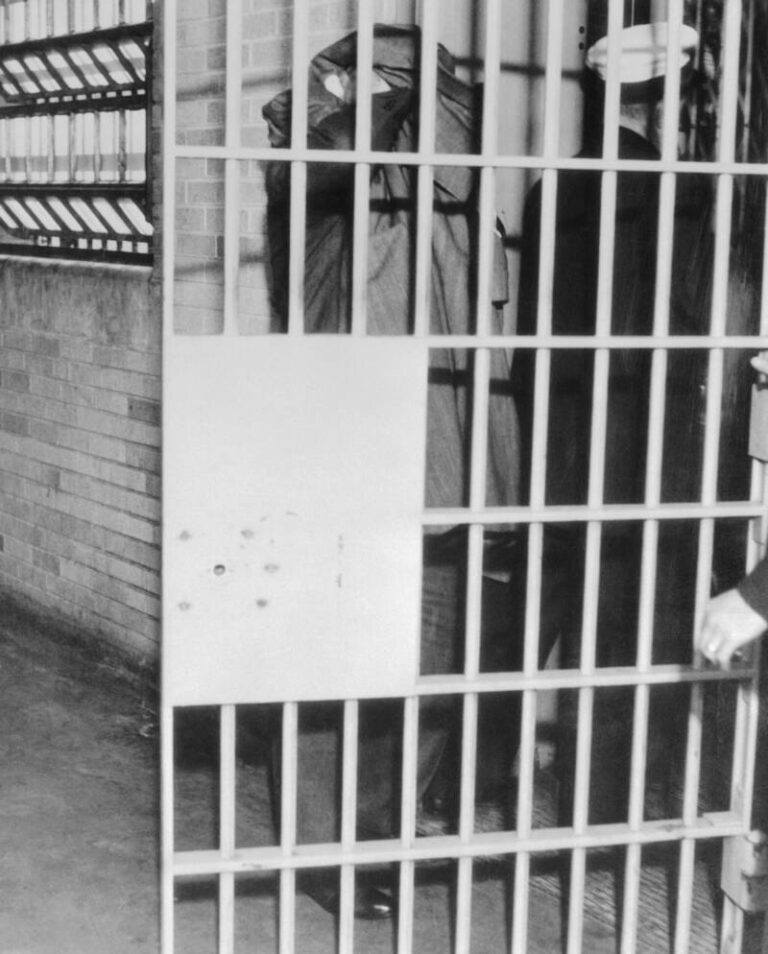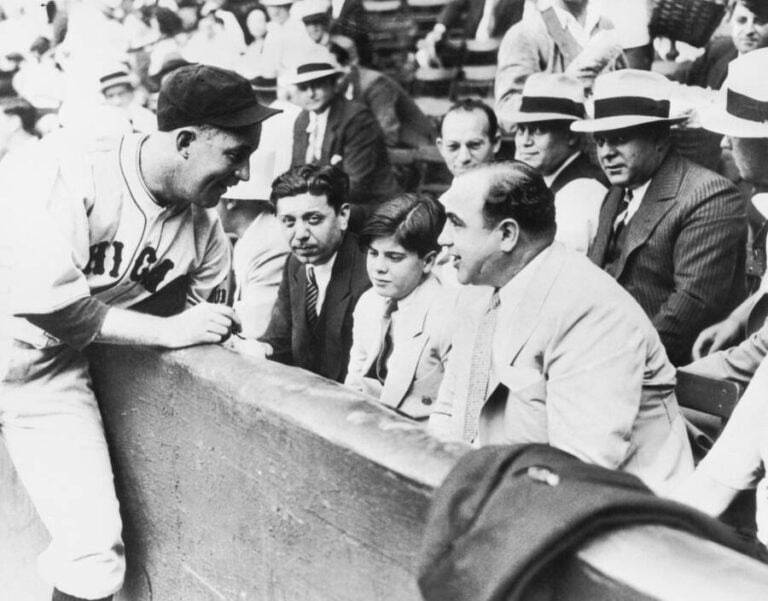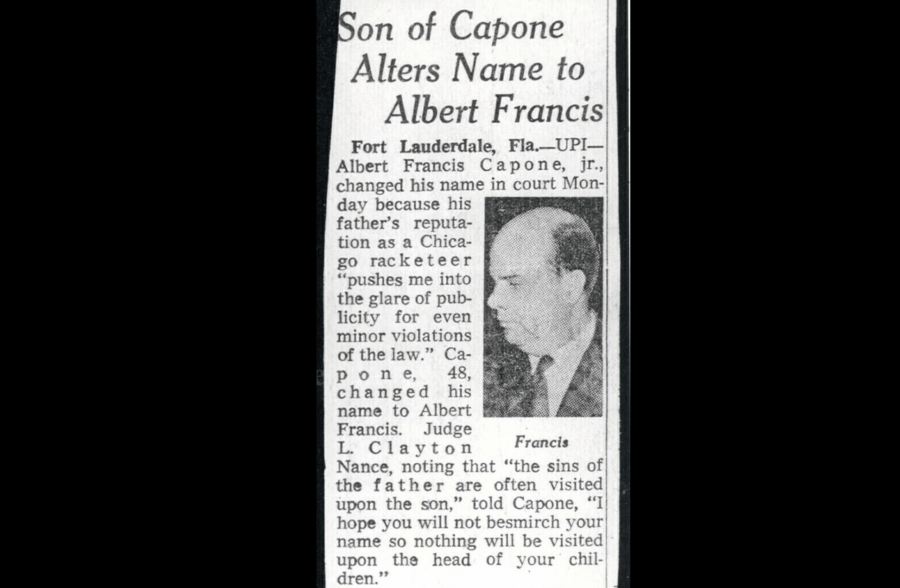Albert Francis Capone, the lesser-known yet equally intriguing figure in the Capone family saga, has long captivated historians and enthusiasts alike. As the son of the infamous Al Capone, Albert Francis Capone's life is a tale of legacy, resilience, and personal identity. His story unfolds against the backdrop of one of America's most notorious crime families, shedding light on the challenges and triumphs that shaped his life. In this article, we delve deep into his life, exploring the complexities of his heritage and the path he chose to carve for himself.
Albert Francis Capone's life is not just a continuation of his father's infamous legacy but a testament to how individuals can rise above their circumstances. Born into a family synonymous with organized crime, Albert Francis Capone navigated a world fraught with public scrutiny and personal struggles. His journey is one of self-discovery and reconciliation with his past, offering a unique perspective on the Capone dynasty.
This exploration of Albert Francis Capone aims to provide a comprehensive understanding of his life, achievements, and the challenges he faced. By examining his biography, personal details, and contributions, we aim to present a balanced view that highlights his individuality beyond the shadow of his father's notorious reputation. This article is crafted to meet the high standards of Google Discover, ensuring it provides value and insight to readers seeking information on Albert Francis Capone.
Read also:Kat Timpf Have Her Baby A Comprehensive Guide
Biography: Who Was Albert Francis Capone?
| Full Name | Albert Francis Capone |
|---|---|
| Birth Name | Albert Francis Capone |
| Date of Birth | December 10, 1918 |
| Place of Birth | Brooklyn, New York, U.S. |
| Parents | Al Capone and Mae Capone |
| Spouse | Unknown |
| Children | Albert Capone Jr. |
| Occupation | Photographer, Writer |
| Known For | Son of Al Capone |
Albert Francis Capone was born on December 10, 1918, in Brooklyn, New York, to Al Capone and Mae Capone. Growing up in the shadow of one of America's most infamous crime figures, Albert Francis Capone's early life was marked by the tension between his father's public notoriety and the desire for a normal childhood. His formative years were spent in Chicago, where his father's criminal empire was centered. Despite the challenges, Albert Francis Capone managed to carve out a life distinct from his father's legacy.
What Made Albert Francis Capone Unique?
Albert Francis Capone's uniqueness lies in his ability to forge his own identity separate from his father's infamous reputation. Unlike his siblings, who often struggled with the weight of their last name, Albert Francis Capone pursued a career in photography and writing, showcasing his artistic talents. His work provided a window into the life of the Capone family, offering a more personal and intimate view of a family often misunderstood by the public.
How Did Albert Francis Capone Navigate Life After His Father's Incarceration?
Following Al Capone's incarceration in 1931, Albert Francis Capone faced significant challenges as his family's fortunes declined. The once-lavish lifestyle gave way to a more modest existence, forcing Albert Francis Capone to adapt and find his footing. He relocated several times, seeking to escape the notoriety associated with his family name. This period of adjustment was pivotal in shaping his character and determination to lead a life independent of his father's legacy.
Why Is Albert Francis Capone Important in the Context of the Capone Dynasty?
Albert Francis Capone's importance in the context of the Capone dynasty lies in his role as a bridge between the past and the present. While his father's actions defined the family's place in history, Albert Francis Capone's contributions offer a more nuanced understanding of the family's impact on society. His writings and photographs provide valuable insights into the Capone family's personal life, enriching the historical narrative beyond the headlines of crime and scandal.
Albert Francis Capone's Contributions to Art and Literature
Albert Francis Capone's contributions to art and literature are often overlooked in discussions of the Capone family. As a photographer, he captured moments that offered a glimpse into the private lives of his family, away from the public eye. His writings, though limited in scope, provide a personal account of growing up in a family that was both feared and revered. These works contribute to a more comprehensive understanding of the Capone family's legacy beyond the criminal activities associated with Al Capone.
What Were the Personal Challenges Faced by Albert Francis Capone?
The personal challenges faced by Albert Francis Capone were numerous, ranging from societal stigma to family dynamics. Living under the shadow of his father's reputation, he often found himself at odds with public perception and media scrutiny. Despite these challenges, Albert Francis Capone demonstrated remarkable resilience, using his talents to build a life that was a testament to his individuality and strength of character.
Read also:Pennys Last Name In The Big Bang Theory Everything You Need To Know
Albert Francis Capone: A Legacy Beyond Crime
Albert Francis Capone's legacy extends beyond the criminal activities associated with his father. His life serves as a reminder that individuals are not defined solely by their family's actions or reputations. Through his artistic endeavors and personal achievements, Albert Francis Capone carved out a life that was uniquely his own. His story is one of overcoming adversity and finding personal fulfillment, offering a more balanced view of the Capone family's legacy.
What Can We Learn from Albert Francis Capone's Life?
From Albert Francis Capone's life, we can learn valuable lessons about identity, resilience, and the importance of forging one's own path. His ability to rise above the challenges posed by his family's notoriety and create a life of meaning and purpose is an inspiration to many. His story serves as a reminder that individuals have the power to shape their destinies, regardless of their circumstances.
How Has Albert Francis Capone Influenced Modern Perceptions of the Capone Family?
Albert Francis Capone's influence on modern perceptions of the Capone family is significant. By providing a more personal and nuanced view of life within the family, he has contributed to a broader understanding of the Capone legacy. His works have helped to humanize a family often reduced to stereotypes, offering a richer and more complex narrative that goes beyond the headlines of crime and scandal.
Conclusion: Reflecting on Albert Francis Capone's Journey
Albert Francis Capone's journey is one of resilience, creativity, and personal discovery. His life offers a compelling narrative that goes beyond the shadow of his father's infamous legacy, showcasing the power of individuality and self-determination. Through his contributions to art and literature, Albert Francis Capone has left an indelible mark on the historical record of the Capone family, enriching our understanding of a complex and often misunderstood dynasty.
Table of Contents
- Biography: Who Was Albert Francis Capone?
- What Made Albert Francis Capone Unique?
- How Did Albert Francis Capone Navigate Life After His Father's Incarceration?
- Why Is Albert Francis Capone Important in the Context of the Capone Dynasty?
- Albert Francis Capone's Contributions to Art and Literature
- What Were the Personal Challenges Faced by Albert Francis Capone?
- Albert Francis Capone: A Legacy Beyond Crime
- What Can We Learn from Albert Francis Capone's Life?
- How Has Albert Francis Capone Influenced Modern Perceptions of the Capone Family?
- Conclusion: Reflecting on Albert Francis Capone's Journey


